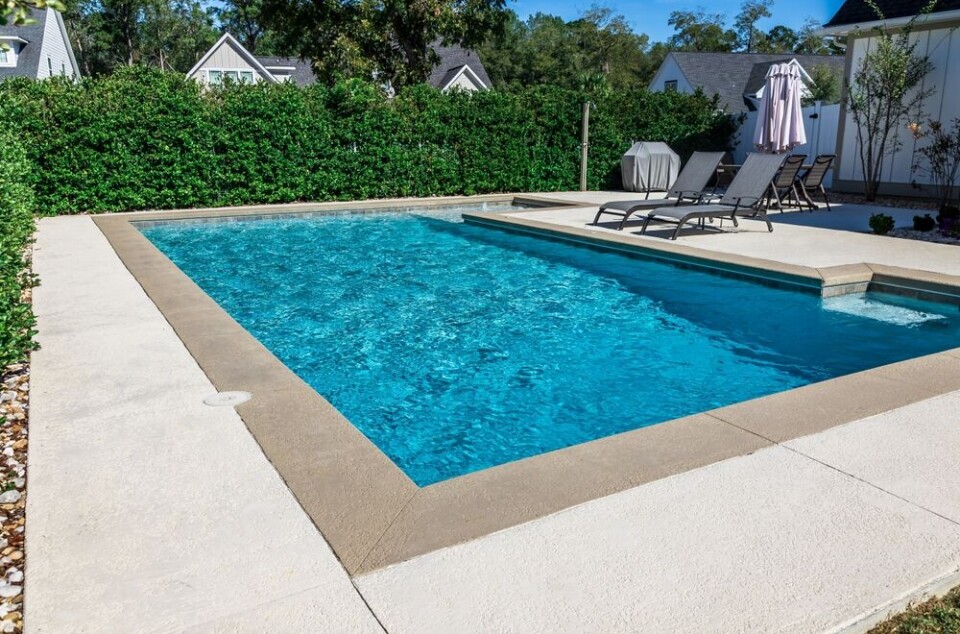-
Why storms in France have indirectly caused carbon monoxide poisoning
We cover tips and rules for detectors
-
Can you offer rentals in France when staying on visitor visa?
There are different thresholds for rentals before they are deemed as ‘professional income’
-
Must all properties in France have a ‘smart’ thermostat?
Modern thermostats can automatically set temperatures even when residents are away
Does a pool still add value to French property despite water restrictions?
An increased selling price might look attractive but do not forget running costs, increased taxes and water bans

Swimming pools continue to be a sound investment, despite their installation being banned or limited in some parts of France due to water shortages.
A 2021 survey found pools can add up to 20% to the value of a property, and the pool builders’ federation, and the Fédération des professionnels de la piscine (FPP), believes this still holds true.
Despite this, the majority of homeowners do not know how much value a swimming pool can add.
A third of people believe it only increases a property's value by one-tenth, and only 12% estimated correctly that they could benefit from a 20% increase.
On average, prices increase by between 16% and 18%, depending on the pool and property type.
“Everything we hear points to built-in swimming pools adding value,” a spokeswoman from the FPP told The Connexion.
Add 5% to property price in south
Using data from across France, a survey by price estimation firm Meilleurs Agents discovered in-ground pools, as opposed to those that sit on the surface, add at least 5% to a property when sale prices are compared to houses without.
The added value of swimming pools is not the same in all areas.
They add more when properties are situated in communes with beaches, especially in the south of the country.
Pools in inland, northern areas do not make such a difference to value.
A leading swimming pool firm, Desjoyaux, points out that most pools, unless specially designed for swimming lengths, are small.
On average, the pools it installs are eight metres by four metres, with a single depth of 1.3 metres.
Droughts limit construction and usage
Pools have remained a contentious topic for several years in France, and are in the firing line once again as drought restrictions become widespread this summer.
Several communes temporarily ban swimming pool construction when water levels become low, and Rennes recently became the first to permanently limit the size of pools.
In general, swimming pools are banned from being filled as soon as drought restrictions come into place (from the orange 'alert' level), with an exemption for pools being filled for the first time (which is largely a hygiene measure). Exact local restrictions depend on rules in the water restriction arrêté (bylaws) in force in the area, but in general 'topping up' is allowed unless a 'crisis' level of alert has been reached.
Swimming pool advocates however argue that these policies are political and have little impact on the environment, with France's three million plus pools only contributing to 0.08% of France's overall water usage.
Consider taxes and running costs
The added value of swimming pools is balanced by the cost of installing pools – anything from €15,000 to €50,000, according to the 2021 survey.
You should also factor in the cost of running the pool, which FPP says is usually €40 to €60 a month, and higher taxe foncière bills.
The latter rises by an average of 5% to 10% for houses with swimming pools.
There is also the one-off taxe d’aménagement on built-in pools.
Shared pools (such as those for apartment complexes) have lower running costs, however correspond to a lower increase in property value.
Pool construction boom for several years
These potential drawbacks have not slowed down construction in a booming sector, however.
France has roughly one swimming for every 21 people, making it the second largest market in the world behind the US.
In 2020 and 2021 alone, new in-ground installations numbered 70,000 and 86,000 respectively, according to data from the FPP.
The boom was attributed to favourable weather and the ‘booster’ effect of Covid-19 keeping people at home.
However, as things return to ‘normal’, the demand for private pools shows no sign of abating.
Pools have gotten significantly cheaper over the years, which is helping to drive this trend, and a host of new pool 'styles' including mini-pools less than 10m² in size are keeping the sector buoyant.
The average price is currently €24,000, but above-ground pools can be bought for less than €10,000.
If planning to install a swimming pool, you should make sure you are aware of the major rules beforehand.
























